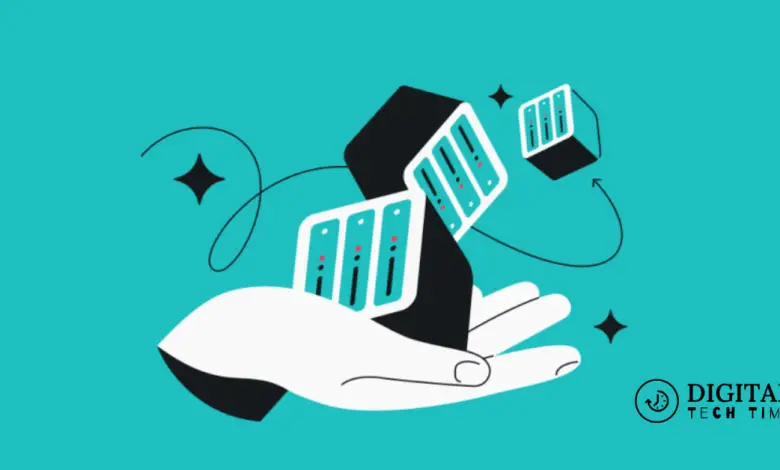Best Practices for Using Proxies Safely: A Guide to Secure Browsing

If you’re concerned about online privacy, you may have heard of proxies. Proxies are a popular tool for protecting your identity, bypassing geo-restrictions, and accessing restricted content. However, using proxies safely requires a good understanding of how they work and how to set them up correctly.
In this article, we’ll provide you with the best practices for using proxies safely. We’ll cover the basics of proxies, including their types and uses, and explain how to set them up correctly. We’ll also discuss safe proxy practices for users, advanced proxy security techniques, and proxies for specific online activities. Finally, we’ll address the risks of using proxies and provide you with proxy server security measures to keep you safe.
Key Takeaways
- Understand the different types of proxies and their uses.
- Always set up proxies correctly to ensure your safety and privacy.
- Use safe proxy practices and advanced security techniques to stay protected.
Understanding Proxies and Their Uses
If you’re new to proxies, it’s essential to understand what they are and how they work. A proxy server acts as an intermediary between your device and the internet. When you use a proxy, your connection request goes through the proxy server instead of directly to the website you want to access. This way, your IP address is hidden, and the website sees the IP address of the proxy server instead.
Types of Proxies and Their Purposes
There are several types of proxies, each with its purpose. The most common types include:
- Datacenter Proxies: These are non-residential proxies that are not associated with an internet service provider. They are ideal for tasks that require a high volume of requests, such as web scraping, but they provide little to no privacy.
- Residential Proxies: These are residential IP addresses provided by internet service providers. They provide a higher level of privacy than data centre proxies, but they are slower and more expensive.
- Mobile Proxies: These are IP addresses associated with mobile carriers. They are ideal for tasks that require mobile data, such as social media automation, but they are also slower and more expensive than other types of proxies.
The Importance of Proxy Privacy and Security
Ensuring anonymity with proxies is essential to protect your online privacy and security. When using a proxy, make sure to follow these best practices:
- Choose a reputable proxy provider: Look for a provider that offers secure and reliable proxies and has a good reputation in the industry.
- Use secure methods for residential proxy usage: If you’re using residential proxies, make sure to use them in a way that does not violate the terms of service of the provider or the website you’re accessing.
- Implement proxy safety tips for beginners: If you’re new to proxies, start with a small number of requests and gradually increase them. Also, make sure to use proxies only for legal and ethical purposes.
By following these best practices, you can use proxies safely and protect your online privacy and security.
Setting Up Proxies Correctly
When it comes to using proxies, proper setup is crucial to ensure that your online activities remain secure and private. Here are some tips to help you set up proxies correctly.
Tips for Secure Proxy Server Configuration
First and foremost, it is important to choose a reliable proxy server provider. Look for proxies with good reviews, high uptime, and sufficient speed. Once you have selected a provider, configure your device’s network settings to use the proxy server. This will typically involve specifying the IP address and port number of the proxy server.
In addition to configuring your device’s network settings, you may also want to consider using a VPN in conjunction with your proxy server. This can provide an additional layer of security and privacy by encrypting your internet traffic.
Best Practices for Proxies in Corporate Networks
If you are using proxies in a corporate network, it is important to follow best practices to ensure that your company’s network remains secure. One best practice is to use a dedicated proxy server for your company’s internet traffic. This can help to prevent unauthorized access and ensure that your company’s sensitive data remains protected.
Another best practice is to implement access controls for your proxy server. This can include using authentication mechanisms such as username and password, or implementing IP address restrictions to limit access to the proxy server.
Implementing Proxies Securely in Business Environments
When implementing proxies in a business environment, it is important to consider the specific needs of your organization. For example, if you are using proxies to access sensitive data, you may want to consider using a dedicated proxy server that is physically isolated from other servers.
In addition to physical isolation, you may also want to consider implementing additional security measures such as intrusion detection and prevention systems, firewalls, and antivirus software. These measures can help to protect your company’s network from unauthorized access and prevent data breaches.
By following these best practices and taking the necessary steps to ensure that your proxies are set up correctly, you can help to ensure that your online activities remain secure and private.
Safe Proxy Practices for Users
When using proxies, it’s important to follow safe practices to ensure your online privacy and security. Here are some guidelines to help you use proxies safely:
Guidelines for Safely Using Proxies for SEO
If you use proxies for SEO purposes, it’s important to follow some guidelines to avoid getting blocked or banned by search engines. Here are some tips to keep in mind:
- Use high-quality proxies from reputable providers.
- Rotate your proxies regularly to avoid detection by search engines.
- Use different IP addresses for different accounts to avoid linking them together.
- Use proxies with different geographical locations to simulate natural traffic.
Safe Proxy Practices for Personal Data Protection
Proxies can also be used to protect your data online. Here are some safe practices to follow:
- Use proxies with encryption to protect your data from hackers.
- Use proxies with no-logs policies to ensure your browsing history is not recorded.
- Avoid using free proxies, as they may compromise your data and privacy.
- Use proxies with residential IP addresses for added privacy and security.
Maintaining Privacy with Proxies: A Guide
If you’re concerned about your online privacy, proxies can help you maintain anonymity online. Here are some tips to help you stay safe:
- Use proxies with no-logs policies to ensure your browsing history is not recorded.
- Use proxies with encryption to protect your data from hackers.
- Use proxies with different IP addresses to avoid tracking.
- Use proxies with different geographical locations to simulate natural traffic.
Essential Safety Tips for Mobile Proxy Users
If you use proxies on your mobile device, it’s important to follow some safety tips to protect your data and privacy. Here are some tips to keep in mind:
- Use proxies with encryption to protect your data from hackers.
- Use proxies with no-logs policies to ensure your browsing history is not recorded.
- Avoid using free proxies, as they may compromise your data and privacy.
- Use proxies with residential IP addresses for added privacy and security.
By following these safe practices, you can use proxies with confidence and protect your online privacy and security.
Advanced Proxy Security Techniques
Advanced Techniques for Secure Proxy Handling
Using proxies can provide an extra layer of security for your online activity. However, it’s important to use them correctly to ensure maximum protection. Here are some advanced techniques for secure proxy handling:
- Use HTTPS proxies: HTTPS proxies encrypt your traffic, making it more difficult for hackers to intercept and read your data. Make sure to use HTTPS proxies whenever possible.
- Rotate your proxies: Rotating your proxies means using a different proxy for each request. This can help prevent your IP address from being blacklisted and improve your anonymity.
- Use proxy chaining: Proxy chaining involves routing your traffic through multiple proxies in a sequence. This can help increase your anonymity and security.
Avoiding Common Proxy Security Pitfalls
While proxies can provide additional security, they can also introduce potential vulnerabilities if not used correctly. Here are some common proxy security pitfalls to avoid:
- Using free proxies: Free proxies are often unreliable and can expose your data to hackers. It’s better to invest in a reputable proxy service.
- Not checking for IP leaks: IP leaks can reveal your true IP address, negating the benefits of using a proxy. Make sure to check for IP leaks regularly.
- Not using authentication: Using authentication can help ensure that only authorized users can access your proxy. Make sure to use strong passwords and two-factor authentication whenever possible.
Best Practices for Managing Multiple Proxies
Managing multiple proxies can be challenging, but it’s essential for maintaining your security and anonymity. Here are some best practices for managing multiple proxies:
- Keep track of your proxies: Make sure to keep a record of your proxies, including their IP addresses, ports, and authentication details.
- Use a proxy manager: A proxy manager can help automate the process of rotating and managing your proxies.
- Monitor your proxies: Regularly monitor your proxies for performance and security issues. If you notice any problems, switch to a different proxy.
By following these advanced techniques for secure proxy handling, avoiding common proxy security pitfalls, and implementing best practices for managing multiple proxies, you can ensure maximum protection for your online activity.
Proxies for Specific Online Activities
When it comes to using proxies, several specific online activities require additional attention to ensure safe and effective usage. In this section, we’ll cover some best practices for using proxies for accessing geo-restricted content, streaming, and data scraping.
Secure Proxy Usage for Accessing Geo-Restricted Content
If you’re using a proxy to access geo-restricted content, it’s important to ensure that you’re using a secure proxy. This means that the proxy should be using encryption to protect your data and prevent it from being intercepted by third parties. Additionally, you should make sure that the proxy is located in a country where the content you’re trying to access is legal.
One way to ensure secure proxy usage for accessing geo-restricted content is to use a reputable VPN service. A VPN (Virtual Private Network) encrypts all of your internet traffic and routes it through a secure server, making it much more difficult for anyone to intercept your data. Additionally, VPNs often have servers located in multiple countries, making it easy to access geo-restricted content from anywhere in the world.
Safe and Effective Proxy Practices for Streaming
If you’re using a proxy for streaming, there are a few best practices you should follow to ensure safe and effective usage. First, make sure that the proxy you’re using is fast enough to stream video without buffering or lag. Additionally, you should make sure that the proxy is located in a country where the content you’re trying to stream is legal.
One way to ensure safe and effective proxy practices for streaming is to use a proxy with a dedicated streaming server. Dedicated streaming servers are optimized for streaming video and are often faster and more reliable than regular proxy servers.
Best Practices for Using Proxies in Data Scraping
If you’re using proxies for data scraping, it’s important to follow some best practices to ensure that your scraping is effective and safe. First, make sure that the proxy you’re using is located in a country where the website you’re scraping is legal. Additionally, you should use a rotating proxy service to avoid getting blocked by the website you’re scraping.
Another best practice for using proxies in data scraping is to use a proxy with a high success rate. A high success rate means that the proxy can successfully connect to the website you’re scraping without getting blocked or detected. Finally, you should make sure that you’re using a proxy that supports the protocols and authentication methods required by the website you’re scraping.
By following these best practices, you can ensure safe and effective usage of proxies for accessing geo-restricted content, streaming, and data scraping.
Dealing with Proxy Risks
When using proxies, it’s important to be aware of the risks involved and take steps to mitigate them. In this section, we’ll cover some best practices for dealing with proxy risks.
How to Avoid Risks with Public Proxy Servers
Public proxy servers can be a convenient and cost-effective option for accessing the internet anonymously. However, they also come with several risks that you need to be aware of.
One of the biggest risks with public proxies is that they may be operated by malicious actors who use them to intercept and steal your data. To avoid this risk, it’s important to only use reputable public proxy servers that have a proven track record of security and reliability.
Another risk with public proxies is that they may be blocked or blacklisted by certain websites or services. To avoid this risk, you can use a proxy rotation service that automatically switches between different proxies to ensure that you always have access to a working proxy.
Ensuring Secure Proxy Connections for Online Transactions
When using a proxy to make online transactions, it’s important to ensure that the connection is secure and encrypted. This will help protect your sensitive information, such as credit card numbers and login credentials, from being intercepted by third parties.
To ensure a secure proxy connection, you should use a proxy server that supports SSL or TLS encryption. This will encrypt your data as it travels between your device and the proxy server, making it much more difficult for anyone to intercept and steal your information.
You should also make sure that the website or service you’re using for your online transaction is secure and uses encryption. Look for the padlock icon in the address bar of your browser to confirm that the website is using HTTPS encryption.
By following these best practices, you can help minimize the risks associated with using proxies and ensure that your online activities remain safe and secure.
Proxy Server Security Measures
When it comes to using proxies, it’s important to take certain security measures to ensure your browsing is safe and secure. Here are some best practices for using proxies safely:
1. Choose a reputable proxy provider
Not all proxy providers are created equal, so it’s important to choose a reputable provider that has a good track record of security and reliability. Look for providers that offer encryption, have a clear privacy policy, and have been in business for a while.
2. Use HTTPS connections
When using a proxy, make sure to use HTTPS connections whenever possible. This will ensure that your data is encrypted and secure, even when it’s being transmitted through the proxy server.
3. Enable two-factor authentication
Many proxy providers offer two-factor authentication, which adds an extra layer of security to your account. This means that in addition to your username and password, you’ll need to enter a code that’s sent to your phone or email to access your account.
4. Check for malware
Before using a proxy, make sure to check for malware on your computer. Malware can compromise your security and make it easier for hackers to access your data, even when you’re using a proxy.
5. Monitor your activity
Keep an eye on your browsing activity and monitor your accounts for any suspicious activity. If you notice anything out of the ordinary, change your passwords immediately and contact your proxy provider.
By following these proxy server security measures, you can ensure that your browsing is safe and secure and that your data is protected from hackers and other malicious actors.
Frequently Asked Questions
What are the differences between HTTPS and HTTP proxies, and which is more secure?
HTTP proxies are less secure than HTTPS proxies because they do not encrypt your traffic. This means that your data is vulnerable to interception and tampering. On the other hand, HTTPS proxies encrypt your traffic, making it more difficult for anyone to intercept or tamper with your data. Therefore, it is recommended to use HTTPS proxies whenever possible.
How can I ensure that a proxy server is reliable and safe to use?
Before using a proxy server, it is important to research and verify its reliability and safety. Look for reviews and feedback from other users, and check if the proxy server has a good reputation. Additionally, make sure that the proxy server uses encryption and has a secure connection.
What are some recommended safety measures when using a proxy?
When using a proxy, it is important to take some safety measures to protect your data and privacy. These include using a strong and unique password, enabling two-factor authentication, and avoiding sharing sensitive information over the proxy.
Is it safe to use free HTTPS proxy servers, and what should I be aware of?
Free HTTPS proxy servers can be safe to use, but it is important to be aware of the potential risks. Some free proxies may be operated by malicious actors who can intercept and steal your data. Additionally, free proxies may be slower and less reliable than paid proxies.
How can I convert an HTTP proxy to a secure HTTPS proxy?
It is not possible to convert an HTTP proxy to a secure HTTPS proxy. To use an HTTPS proxy, you need to find a proxy server that supports HTTPS and configure your device to use it.
What steps should I take to configure a proxy securely on my iPhone?
To configure a proxy securely on your iPhone, you should use an HTTPS proxy and make sure that it uses a secure connection. Additionally, you should enable two-factor authentication and use a strong and unique password. Finally, avoid sharing sensitive information over the proxy.





